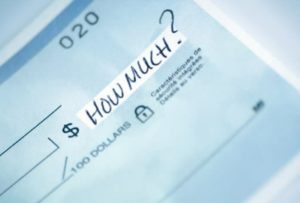Table of Contents
Business rates are generally tax on properties that are used for business motives. So, if you want to open your business on any commercial property, you must understand what business rates are and how much you have to pay.
This article on business rates in the UK- a complete guide will give you full insight into business rates in the UK. Let’s have a look at this.
About Business Rates
Business rates are taxes made to help fund services in your local region. The governments have designed these taxes, charging business rates on commercial properties like offices, shops, pubs, and warehouses. Mostly the non-domestic properties attract the business rates.
Business rates can also be charged if only one floor or part of the building is used for non-domestic or business purposes.
Local authorities collect the business rates in their respective region and pass the money to the central government. A part of these funds is then reallocated to local authorities in a population-based formula.
Business rates are a way through which the local authorities get financed. Although the central government or the devolved government sets and collects the business rates as a reproach of the considerable variations in chargeable values and income present in different regions.
The current business rate scheme was established in 1990, along with community charge as a substitution of the old domestic and non-domestic rates scheme.
In recent times, the business rate system has come under considerable perusal due to the growth of the online business and the move to home working.
How Much Is A Business Rate?
In the October 2021 budget, chancellor Rishi Sunak said that the government has planned to reform the elements of the business rate system.

These measures comprise plans for property revaluations every year, proposals for new business rate relief to find energy efficiency investments, and details if further improvement relief for those who are improving their property will not have to pay an increase in business rates for the first 12 months.
The chancellor also declared that all business rates relief will be extended till 2023. And reported a new 50% business rate discount for all the retail, leisure, and hospitality businesses to support them because of the disruption caused by Covid-19.
Two-thirds discount business rates up to £105,000 per business or £2 million it was needed to close under the rules announced in January 2021 (further discounts for 2022-23, as discussed below).
Further, more reforms are possible in the future as the government will soon consider a new online sales tax and utilize the revenue to reduce the business rates.
Small Business Rates Relief
Reliefs are available for a few properties- the most useful ones for small firms are the slight business rates relief.
You can attain this relief if your property has a value of less than £15,000 and if your business only uses one property-
- Complete relief is available on properties that have a rateable value of £12,000 or less than that.
- And for those between £12,001 to £15,000, relief will go down gradually from 100%-0%.
If you have a small business but don’t qualify for small business rate relief, your bill can still be worked out using the lower small business multiplier.
Some other business rates reliefs include rural rate relief and charitable rate relief.
Business Rates In Case Of Working From Home
Generally, you don’t have to pay business rates if you use a small section of your home for business motives ( like if you use a room as an office).

But in some conditions, you have to pay business rates on top of council tax if:
- If your property divides into domestic and business parts, or if you use a flat above a shop or office.
- You trade things to people who visit the respective property.
- You have an employee at your property.
- You have made changes to your domestic place so that you can run your business ( like converting your garage into your office or shop).
Calculation Of Business Rates
Business rates are calculated by bombing a property’s rateable value and subsequent multiplier.
The rateable value, RV, of non-domestic property in England and Wales, is determined by the Valuation Office Agency, the Scottish Assessors, or the Land And Property Service Department Northern Ireland. The rateable value is made to consider the property’s rent to attract people to the open market.
The rate value of non-domestic property keeps getting regulated and reviewed. The most recent evaluation was done in 2017, and the next revaluation is scheduled for 2023. It has been postponed from 2021 due to the covid-19 pandemic.
The multiplier is expressed in terms of figures in pounds. The multiplier is calibrated by the UK government and the development government in Wales and Scotland.
The standard multiplier value in England was 51.2p, in Wales it was 53.5p, whereas in Scotland it was 48.9p.
Thus, the annual business rate for a business property is calculated by multiplying the property’s rateable value by the multiplier.
For instance – if a standard non-domestic property has a rateable value of £50,000 and the multiplier was 51.2p in pounds, then it is liable to annual business rates of £25,600.
Businesses usually pay business rates in monthly installments. If the non-domestic premises are unoccupied, the owner of the property will become liable for the associated business rates. An empty property is stated for initial three months or six months for industrial storage property.
The empty occupation relief can cost the exchanger about 1 billion pounds a year. Moreover, the agricultural land fisheries are not liable for business rates.
The present business rate rule is operated with some additional practices of rate reliefs. Some of the prominent reliefs are-
- Small business relief
- Charities
- Rural relief
- Enterprise zones
- Discretionary relief
- Covid-19 relief
- Supplemental charges
In England, these charges are currently in regulation for businesses located around the Crossrail development in London, and these businesses are presently subject to only a 2% supplement. Calculating your business rates and expenses may give your unexpected result, you can increase your income or turnover in business by trading cryptocurrencies from thecryptorobo.com/tr.
Author Profile

- Guest Blogger & Outreach Expert - Interested in Writing Blogs, Articles in Business Niche | News Journalist By Profession in the United Kingdom
Latest entries
 BusinessFebruary 17, 2026Why Online Shops Need a Fulfilment Centre?
BusinessFebruary 17, 2026Why Online Shops Need a Fulfilment Centre? LawJanuary 9, 2026Emily Windsor On The Judgment Calls Barristers Make Daily
LawJanuary 9, 2026Emily Windsor On The Judgment Calls Barristers Make Daily TravelJanuary 7, 2026Key Considerations When Installing Temporary Barriers for Roadworks
TravelJanuary 7, 2026Key Considerations When Installing Temporary Barriers for Roadworks BusinessNovember 21, 2025A Practical Guide to Using LMS Platforms for Better Onboarding
BusinessNovember 21, 2025A Practical Guide to Using LMS Platforms for Better Onboarding




